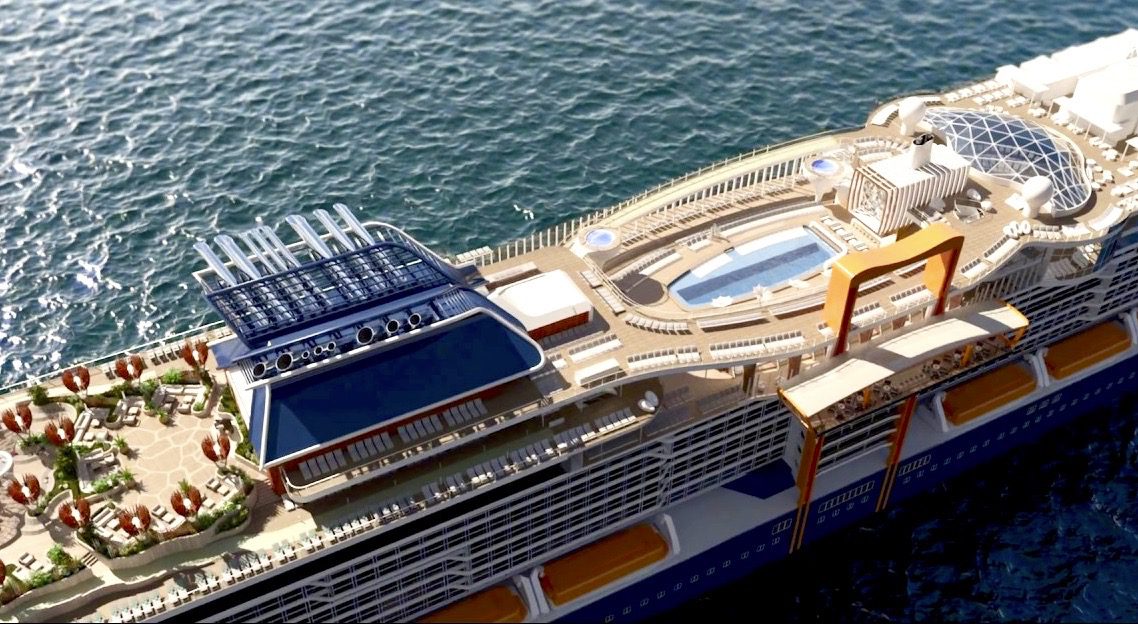Table Of Content
- What is the Code for Death on a Cruise Ship?
- Look Inside A Cruise Ship Morgue
- Cruises
- His body was stored inside a walk-in cooler normally used for beverages instead of a properly chilled morgue
- Cruise ship morgues have space for several bodies
- When a Passenger Dies at Sea: What You Need to Know
- Is there a morgue on cruise ships?

Cruise ships are like floating cities, with thousands of passengers enjoying amenities like restaurants, pools, casinos, and entertainment. In some cases, they keep the deceased on board, allowing the cruise ship to transport it back to the original port. This allows the deceased passenger’s companion to continue with their journey. While most passenger deaths are not the cruise line’s fault, it is a reality for hundreds of passengers every year.
What is the Code for Death on a Cruise Ship?
It will involve a lot of paperwork, as well as embassy support if needed, and translation services if there are language differences. Generally speaking, the first large port city the ship calls at is where the body will be offloaded, taken to a medical examiner's office and repatriated. But each country has its own rules and regulations about accepting bodies, declaring cause of death and repatriating remains. According to the Cruise Lines International Association, the latter two can have requirements that necessitate the off-loading of anyone who's died, or preclude the line from being able to offload a body. Centers for Disease Control and Prevention requires that any ship that calls or homeports at a U.S port must immediately report any deaths onboard.
Look Inside A Cruise Ship Morgue

Certain employees from the cruise line care team will have received training in providing emotional and active support in sorting out the next steps for grieving passengers of the deceased. It’s rare for people to die from accidents, jumping overboard, or crime on cruise ships. In part, it depends on where the cruise ship is traveling; larger port cities are more likely to accept a body and deal with the issue, while a small island location may not. When someone dies on a cruise ship, the ship’s doctor will pronounce the person dead and then notify the cruise captain of the death.
Cruises
However, if you are concerned about crime on cruise ships, these stats are published and nominal. If you have any questions about what to do in the event of a death on board a cruise ship, be sure to ask your travel agent or the cruise line before booking your trip. It’s certainly not uncommon for deaths to occur on a cruise ship, as this Reddit thread testifies with many people sharing their experiences. Elderly passengers make up a large portion of the cruise ship demographic.
Vacation horror as ‘drunk’ son, 20, jumps from Royal Caribbean cruise in front of family
In these cases, the cruise line will work with the family to find a suitable solution, such as disembarking the body at the next port or arranging for repatriation. From the role of the ship’s crew to the options available for families, we’ll take a detailed look at how cruise ships handle this somber situation. While most deaths onboard cruise ships are from natural causes, there are occasional accidents, suicides, and murders.
If you or a loved one were injured in a maritime incident, we can connect you to lawyers for a free consultation about compensation that may be available to you. When you choose to apply (and are approved) for a new credit card through our site, we may receive compensation from our partners, and this may impact how or where these products appear. Please view our advertising policy and product review methodology for more information. Make sure your trip insurance plan includes repatriation as that will cover the bulk of these expenses. Depending on the insurance company, you may also get help sorting through all the paperwork and requirements.
They have the storage facilities to hold a body safely and respectfully and will support the family of a lost loved one as much as possible. When a cruise ship passenger dies, the staff places the body in the onboard morgue until the ship reaches a suitable port to disembark it, where it will be flown home. The cruise line will inform the next of kin if they’re not already sailing with the passenger. The most common cause of death on cruise ships is natural, primarily due to heart attacks (source). The prevalence of heart attacks as a leading cause of death isn’t surprising, given the higher average age of cruise passengers. The stress of travel, excitement, and perhaps the physical activity involved in participating in various ship activities can exacerbate these conditions.
This is to minimise the number of guests that see the body and potentially be upset. The total number of deaths is low, considering that more than 30 million people embark on cruises annually. The repatriation process varies significantly based on local laws and the ship’s itinerary. Ceremony locations are carefully chosen to ensure that the ashes are scattered in a place that’s significant to the family member being remembered. Without insurance, the costs may have to be covered by the passenger’s family. The captain will then pass orders for the next of kin to be contacted and arrangements for the body to be transported back to shore.
Former cruise ship worker reveals the eerie 'reason' they host free ice cream parties - UNILAD
Former cruise ship worker reveals the eerie 'reason' they host free ice cream parties.
Posted: Sun, 03 Mar 2024 08:00:00 GMT [source]
If foul play is suspected, the relevant authorities carry out an investigation. They can drive the travel companions to a nearby hotel if they want to disembark and remain with them until they return home. If you have questions or have experienced the event of a death on a ship yourself, please share in the comments. An accompanying passenger to the deceased will also tend to disembark with the body.
Each oceangoing cruise ship is required to carry body bags and maintain a morgue. Separate from food storage areas, most morgues are small, with room for three to six bodies. The morgues on cruise ships are often located on the lowest deck and are equipped with stainless steel refrigeration units to maintain the body’s preservation. It is important to note that these morgues are always kept separate from areas where food is stored, ensuring proper hygiene and safety.
The U.S Centers for Disease Control and Prevention (CDC) will also need to be informed when the cruise ship is at a US homeport. The morgue is temperature-controlled and has refrigeration units to preserve the bodies of the deceased until they can transport back to shore. On a ship, the morgue will be relatively small and just large enough to serve the purpose of holding up to 3 to 6 bodies in cool refrigerated compartments made fro stainless steel. This post goes over the process of dealing with a death on a cruise ship and what happens to the body after the cruise. However, for extremely sensitive matters, almost all cruise lines use the same critical codes.
Through this and other emergency procedures, cruise staff uses specific codes based on the circumstances. "Our crew is proactive," says a spokesperson for Carnival Cruise Line. The line has procedures in place for dealing with these situations, including employees specifically trained to provide emotional and logistical support to grieving loved ones.
Now, she helps over 1 million people per month to plan their perfect cruise holidays. But like anything else, there's always a chance of mishaps or accidents, like the case of a 21-year-old man who had a severe allergic reaction aboard a Norwegian cruise liner and died in 2010. Travel insurance provides comprehensive protection and a worry-free vacation.
Ex-cruise ship worker reveals the macabre reason for throwing free icecream parties onboard - New Zealand Herald
Ex-cruise ship worker reveals the macabre reason for throwing free icecream parties onboard.
Posted: Thu, 29 Feb 2024 08:00:00 GMT [source]
While smaller cruise lines can accommodate 2-3 bodies, larger ships can sometimes store up to 10 bodies. The onboard team must be qualified to handle early disembarkation and repatriation arrangements. Unfortunately, the cost will fall on the passenger’s family or travel companions, rather than the cruise line. Some travel insurance policies cover disembarkation and repatriation in the event of death on board, so travelers should be insured before going on their vacation. Bodies can be stored in shipboard morgues as needed, though not for much longer than a week.
Check with your provider before boarding and look into travel health insurance for concerns over recouping any out-of-pocket costs. The remains are generally required to be in a biodegradable urn and some cruise lines require the entire urn to be tossed into the sea. For example, 50 non-sailing guests can take part in weddings aboard Carnival Cruise Line ships before the cruise sails from the port of embarkation. But there are some lesser-known accommodations available on most cruise ships. The brig, usually a bare-bones room with a bed and bathroom facilities, does not have iron bars like a traditional jail cell. It is used to detain guests who commit serious crimes like assault or possession of illegal substances.
They gathered data from 78 ocean cruise lines worldwide to analyze passenger and crew mortality from 2000 to 2019. It gets its name from the Interstate 95 highway running along the United States east coast. It’s a crew corridor that runs along almost the entire ship’s length, but it is not accessible to the passengers. Whether you die on a ship or on land, cruise lines don’t offer a burial at sea.

No comments:
Post a Comment